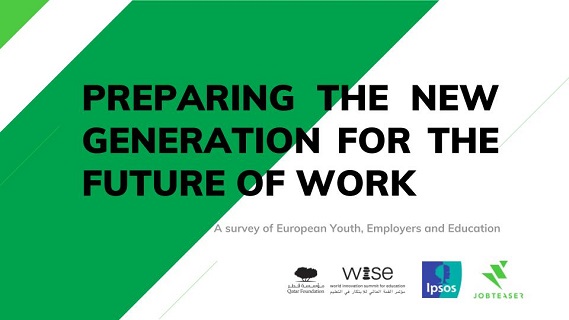Michelle Craig of JobTeaser discusses how we can prepare the next generation for the future of work.
The prospect of making the transition from university to the workplace is already daunting for students, and the world of work is only going to grow increasingly complex. How does the youth view the changes – both technological and managerial – that will affect the workplace of tomorrow, and how prepared do they feel to enter the future job market?
In partnership with WISE (the World Innovation Summit for Education) and Ipsos, JobTeaser gathered opinion from 3000 young people, employers and education stakeholders across the UK, France, Spain, Germany and Belgium, in our latest survey; Preparing the New Generation for the Future of Work. Our aim was to better understand the fears and aspirations of the new generation when facing the future of work and draw lessons on how an ecosystem of universities, employers and students can work better together.
We found out that while the youth is surprisingly optimistic about the future of work, they have expressed an overwhelming need for guidance: 9 out of 10 said they would like to be better supported as they make life-changing career decisions – and they see work experience as the key to helping them navigate their future careers.
While the youth in the UK and companies and education stakeholders across the five countries were all aligned on the importance of soft skills, they didn’t always agree on the types of subjects that should be taught to prepare for the future of work, or the best strategies to get there.
For young people and employers, the “capacity to understand job market trends” featured in the top three ways that education systems can better support students, but education stakeholders gave more weight to the quality and training of teachers. Of course, the two are not mutually exclusive – universities could consider training teachers on providing guidance to students on job market trends, for instance.
Interestingly (on average across the five countries) young people considered universities responsible to prepare them for their first jobs, while they considered companies responsible to prepare them for the future of work.
This all comes down to better alignment among different factors as co-designing the future of employability is essential for the new generation to thrive in tomorrow’s workplace. We are delighted to share the results exclusively to ISE members on the 2 April and to explore the responsibility of ensuring the next generation is able to successfully enter the workforce and positively impact the economy and wider society.


0 Comments